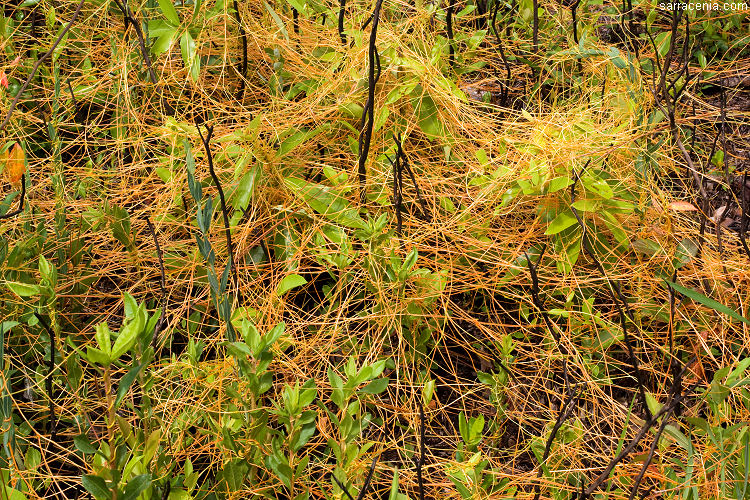
Dodder
While Beth photographed her plant, I ranged around in the vegetation.
I found a nice patch of dodder (Cuscuta sp.) sucking the vital
fluids and nutrients life out of the neighboring vegetation. Being a fully parasitic species, it does not
produce chlorophyll, and so is not green. It looks like a mass of twine.
I do not know what species this is---to identify it would have required flowers, which I could not find. But if any
botanists out there can sight-ID this, I'd love a species identification for it!
Here is a view of the colony showing more of its extent.
This view
shows the plant winding around it host. Can you see the
neat spider peaking out in that picture?
The day's hike was filled with magnificent views. Those of you who have hiked in remote wilderness areas know the
sublime pleasure of being in a quiet, distant land, where humans are irrelevant.
From a perspective of monomaniacal interest only
in carnivorous plants, the hike was not very productive. We saw some species,
such as Drosera capillaris and Utricularia purpurea, but not
much more.